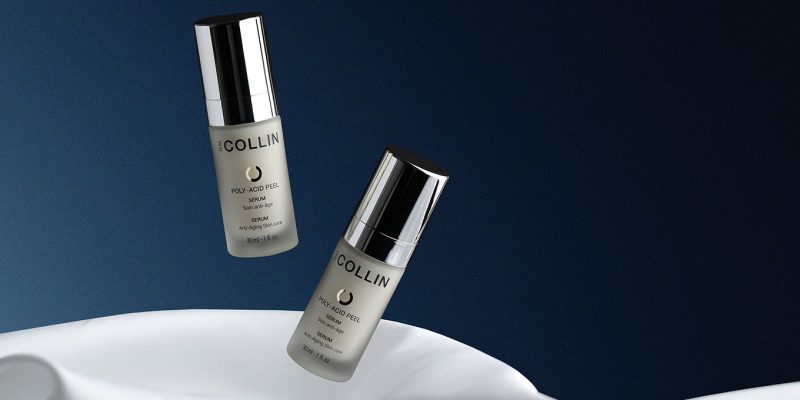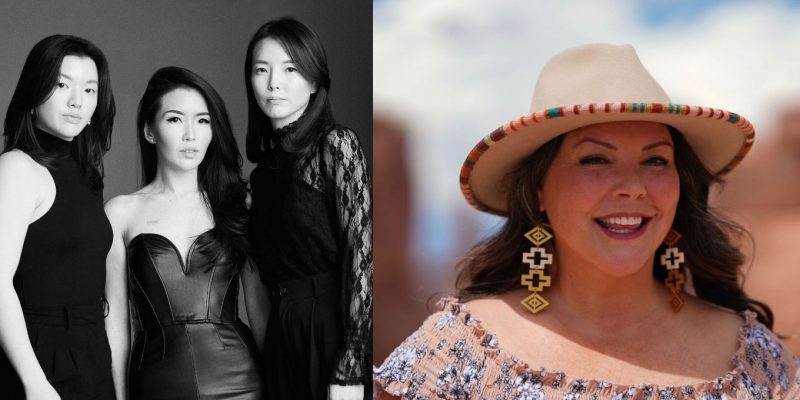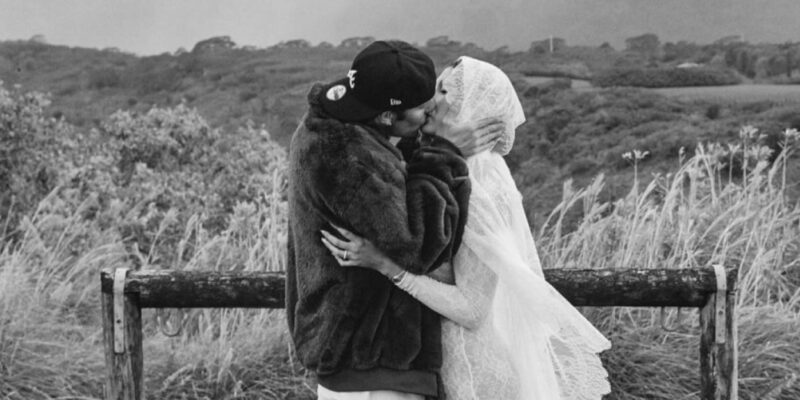Culture
Gemma Chan Is Channelling Her Energy Into Action
"There are a multitude of experiences and stories to tell from within our communities."
by : Suyin Haynes- Oct 20th, 2023

Petros
Gemma Chan and I are walking down the idyllic leafy paths of Regent’s Park, one of her favourite spots in London, England, talking about how the pandemic strengthened our relationships with nature. “I think it’s probably something I took for granted before,” she says.
She tells me about a family visit earlier that week to the BBC Earth Experience, an immersive exhibition narrated by David Attenborough. It made a deep impression on her, but it doesn’t take long for her tone to jump from wonder to concern as our conversation turns to the climate crisis. This summer has seen devastating heat waves and wildfires in Europe and North America. It’s a lot, and Chan feels it. “I’m lying awake pretty much every night thinking about it,” she says. She reels off worrying statistics with sharp accuracy, including a 2017 study indicating that just 100 companies are responsible for 71 percent of global emissions. It’s one of several facts she cites during our conversation. There’s much on her mind, so it comes as little surprise to me that her current read is Rafael Behr’s Politics: A Survivor’s Guide.
 Petros
PetrosNevertheless, she still has hope. Climate anxiety might be keeping her up at night, but she’s putting that energy into understanding the latest research and the campaigns that can actually make a difference. “Changing the system, not perfecting our own lives, is the point,” she says, quoting environmentalist Bill McKibben.
“Changing the system” aptly describes Chan’s work as both an actor and an advocate. Within the entertainment industry, she has supported the Time’s Up initiative against sexual harassment at work and has shared her experiences of and spoken about the lack of opportunities for East and Southeast Asian (ESEA) actors. Chan, 40, who grew up in London, made her acting debut in 2006 after studying law at Oxford University. Nearly two decades later, does she feel there are challenges in speaking up? “It’s still inherently risky, I think, to bite the hand that feeds you,” she says. “And there’s still a lot of bad behaviour in the industry. It’s very difficult to change that culture.”
 Petros
PetrosChan’s efforts to change culture go far beyond Hollywood and onscreen storytelling. She tells me with pride about her role as a Unicef ambassador, something she started in 2021. The same year, prompted by the rise in anti-Asian racism connected to the pandemic, Chan launched and led the #StopESEAHate campaign in the U.K., fundraising for grassroots ESEA community organizations. The pandemic also saw her and her partner, fellow actor Dominic Cooper, support the NHS (National Health Service) by delivering hot meals to health-care workers, although she’s quick to downplay her role. (“It seemed like a very small thing we could do, and I can’t in any way take credit for it.”) It’s a running theme with Chan: She’s always keen to highlight the work of others before her own.
She acknowledges her discomfort around being called an “activist,” pausing when I ask her how she feels about the term. “There are people who have been doing work on the ground in communities, and it’s their whole life’s work. And I in no way equate myself with that,” she says. “I would probably consider myself more of an advocate.” For Chan, it felt natural to use her platform to spotlight other causes. She lists the questions she asks herself before doing so: “Is it helpful for me to be saying something about this? Am I the best-placed person to say something about this? Am I going to take space from someone else? It’s all evolving for me, and I’m still trying to work out how I can help rather than hinder the progress we all want.”
“There are people who have been doing work on the ground in communities, and it’s their whole life’s work. And I in no way equate myself with that. I would probably consider myself more of an advocate.”
We meet in late July, and she’s much more prepared than I am for the changeable British-summer weather, wearing both layers and sunglasses, her wavy hair tucked behind her ear by an almost imperceptible hairpin. We’re also meeting during the historic WGA and SAG-AFTRA strikes that have brought Hollywood to a halt. “I think we’re at this inflection point where something has to be done,” says Chan. “It’s painful but necessary to go through this.”
We talk about the culture we’re both consuming and the renaissance of ESEA storytelling we’re seeing, from books (Chan has recently finished reading R. F. Kuang’s satire Yellowface—“I really enjoyed it; it’s quite sly”) to films with predominantly ESEA casts. I mention Michelle Yeoh, and Chan lifts her hands up to the sky in imaginary praise, calling the Malaysian Oscar winner an “absolute legend.”
“I feel like we’ve got our foot in the door,” she says. “It’s storytelling in all its genres, and I think it’s great because it also shows that we’re not a monolith. There are a multitude of experiences and stories to tell from within our communities.” But, of course, there’s still work to be done—women and people of colour remain under-represented, both in front of and behind the camera. It’s a power imbalance that Chan hopes to help redress through her producing work. “It feels really natural, and it’s really good to be involved at a much earlier stage in finding these stories,” she says.
 Petros
PetrosLately, she’s been looking back at her own family’s story. In 2022, as part of East Side Voices, an anthology of essays by ESEA writers, Chan wrote about her father’s experience in the merchant navy and the wider issue of postwar Britain’s mistreatment of Chinese seamen. Was there any hesitation from her father? “‘Suspicion’ would be the right word for my dad—like, ‘Why are you asking me so many questions?’ But I think he was proud of it. He sent me a message when it came out, saying ‘Well done, keep going.’”
She’s now thinking about exploring her roots in mainland China, Macau and Hong Kong, focusing on her “courageous, fierce” grandmothers, who played pivotal roles in the futures and fortunes of her family. “They’re my huge inspirations, and there’s so much I’m still finding out about them,” she says, adding that she may write about them in the future to honour their legacy.
It’s not hard to get straight into the big topics with Chan—from the climate crisis to underfunding in education and the arts to the state of British democracy and more. Yet she has a quality of self-awareness and humility about her that is all too rare in a noisy world where social media moves a mile a minute and hot takes abound. She is open enough to admit she doesn’t know the answers to everything and that she’s constantly learning. “There’s a lot of pressure to give your opinion on everything, but I try to choose my battles wisely,” she says.
 Petros
PetrosFind the full story in the November 2023 issue of ELLE Canada — out on newsstands and on Apple News+ October 23. You can also subscribe for the latest in fashion, beauty and culture.
Newsletter
Join our mailing list for the latest and biggest in fashion trends, beauty, culture and celebrity.
More from Culture
Read Next

Fashion
25+ of Hailey Bieber's Chicest Style Moments
Major fashion inspo ahead.
by : Lauren Knowles- May 14th, 2024

VIP
Top 7 Travel Packages for an Authentic Portuguese Experience
Embark on an unforgettable journey through Portugal, a country rich with deep historical roots, captivating landscapes and a vibrant cultural tapestry.
by : Contributor Content- May 14th, 2024

Beauty
This Exfoliating Serum Creates a ‘‘New Skin’’ Effect
Say hello to smooth, radiant skin.
by : ELLECanada.com- May 2nd, 2024




